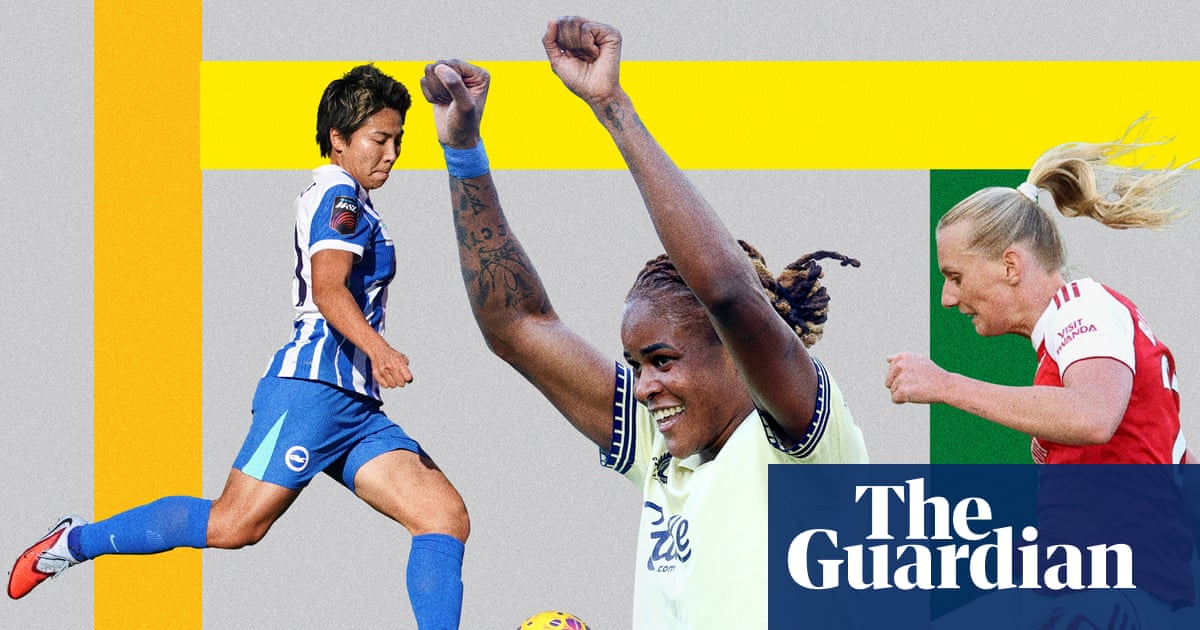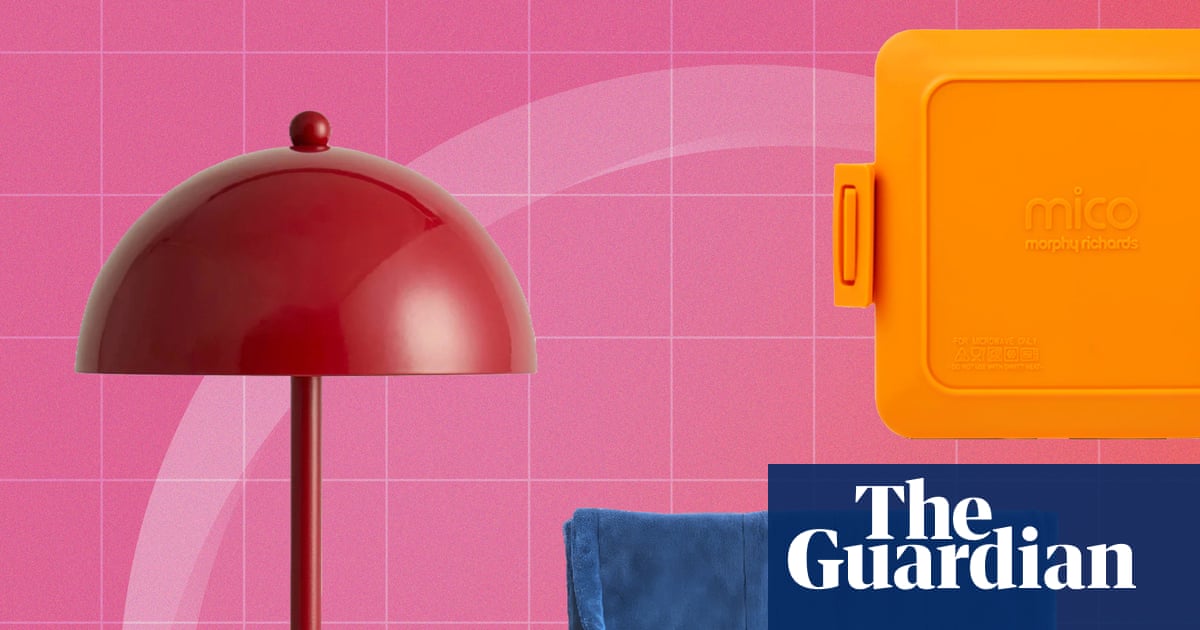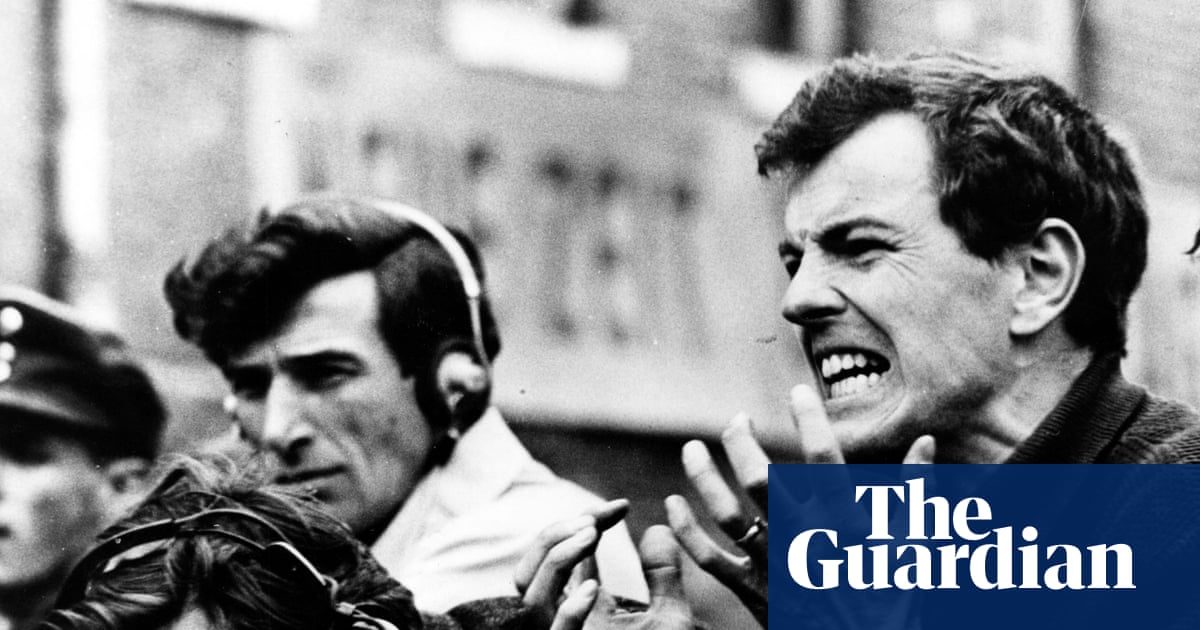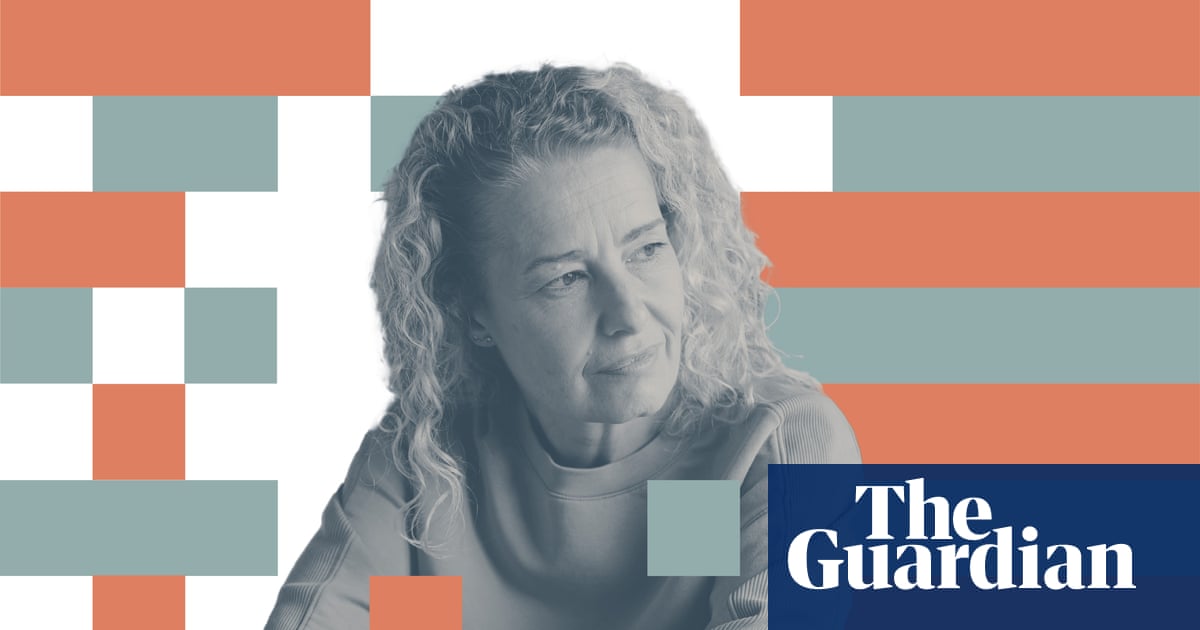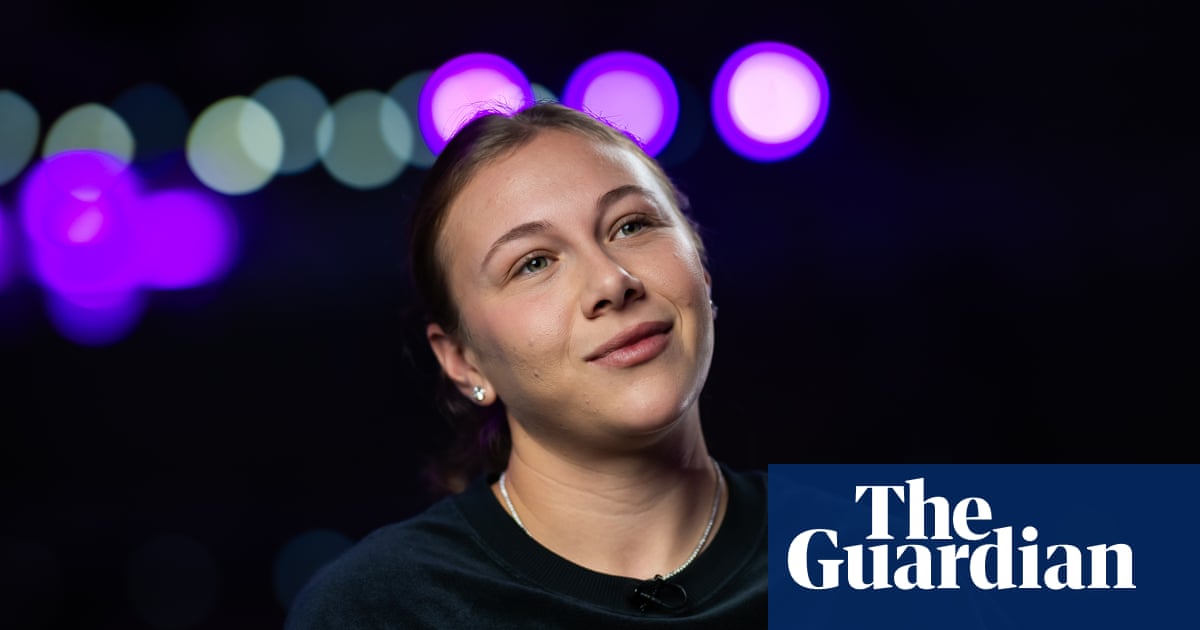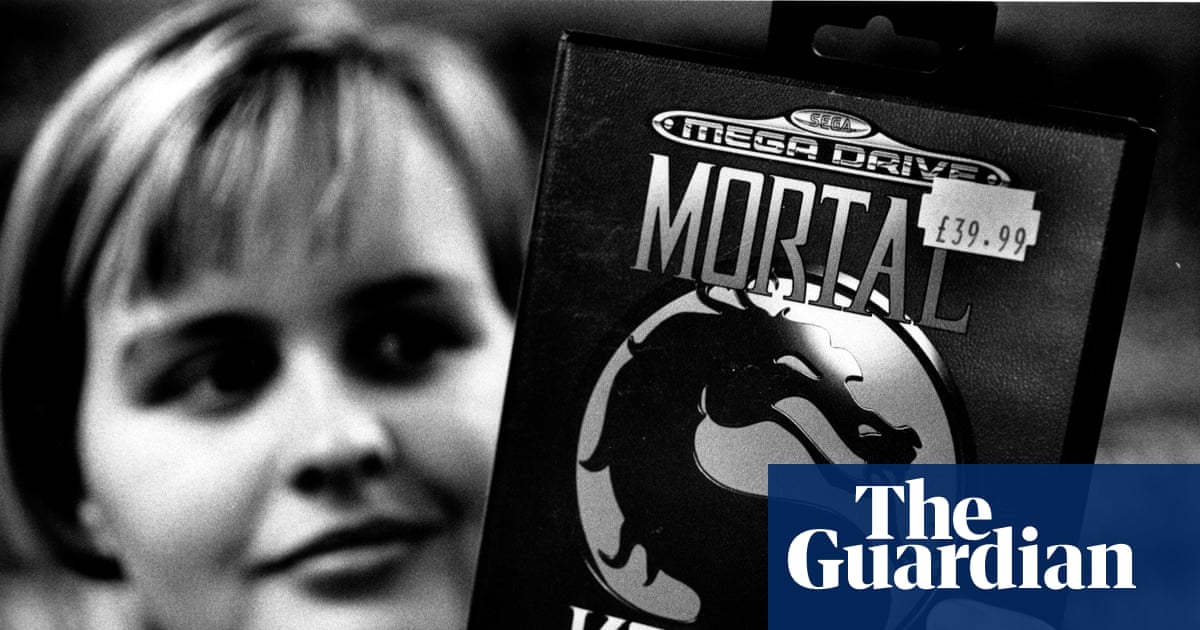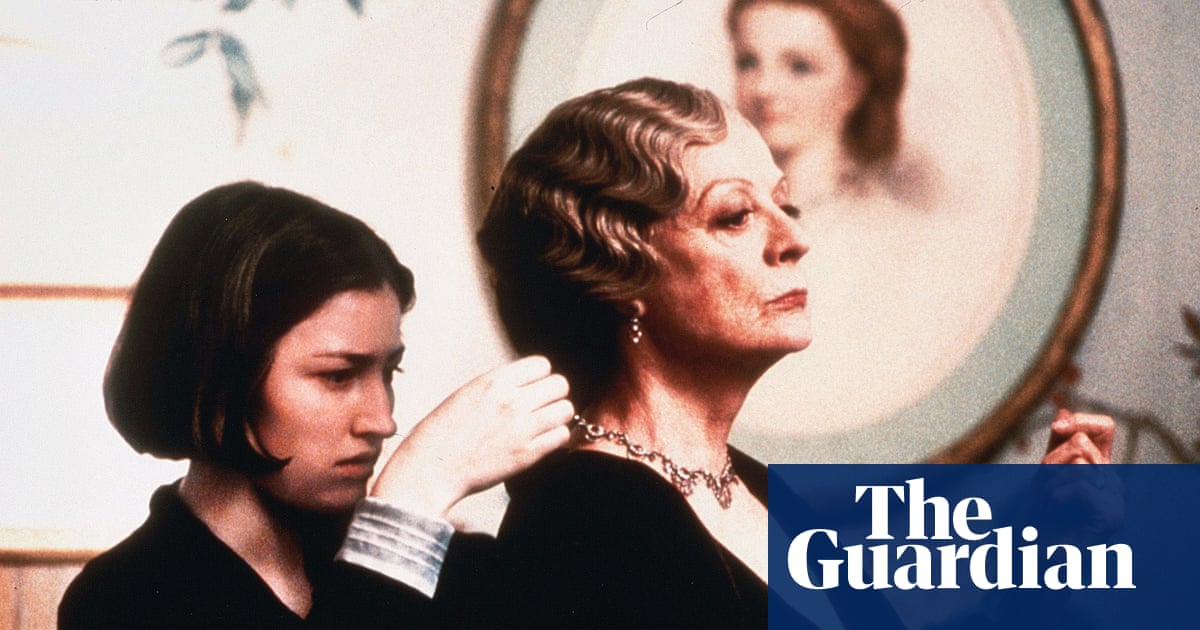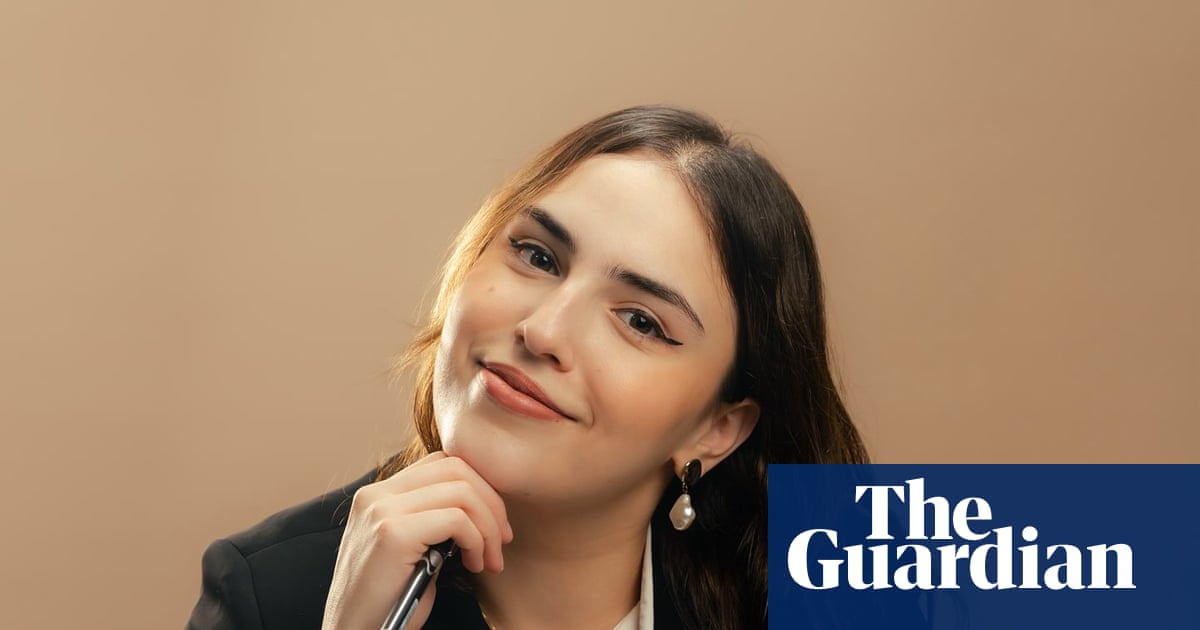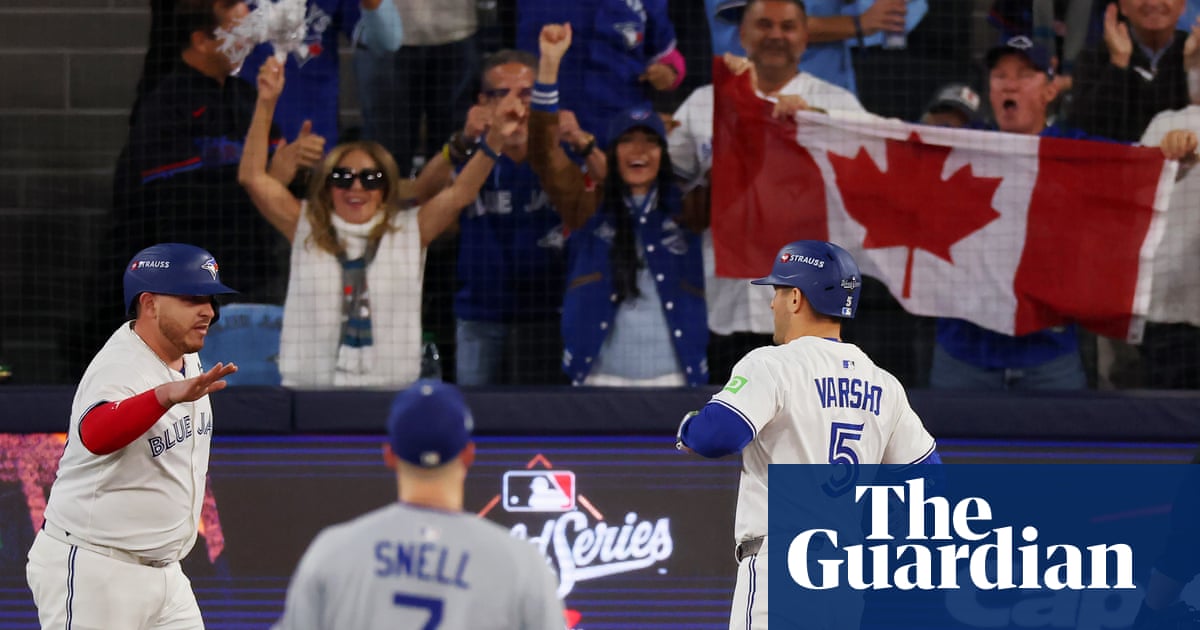When I told my GP it often takes me three hours or more to fall asleep, she pulled the kind of face you never want to see on a doctor. She scribbled in her notes, and then said the dreaded phrase: “Have you tried sleep hygiene?”
Like most insomniacs, I’ve sleep-hygiened the heck out of my life. I go to bed at the same time every day in a TV-free bedroom with my phone far from reach and, when necessary, my husband in the spare room. Then I lie there, worrying about my failure to be sleep-hygienic enough.
Tired of being tired, I craved real help – ideally not in pill form. In the past, sleeping pills have only worked for me in the short term, and weaker sedatives such as first-generation antihistamines make me sleepy but without sending me to sleep. Social media is brimming with supposed miracle cures, including blueberries, decaf coffee and tart cherry juice – but do any of them work?
I’m willing to try anything that spares me yet another lecture on sleep hygiene, so I put these and other claimed insomnia cures through their paces for the Filter. Here are the ones that sent me into a deep slumber, and those that just sent me round the bend.
Why you should trust me
I’ve spent three decades reviewing consumer products, from heated clothes airers to computer software, so I’m professionally sceptical of manufacturers’ claims that we can magically improve our lives by buying their stuff.
My recent roundups of mattresses and hay fever remedies included a few items that genuinely helped me sleep better (and snore less – did I just say that out loud?). However, as a fiftysomething woman with a solid background in under-sleeping and overthinking, I need more than a nice bed to achieve optimal slumber. This is the product test I’ve been waiting for.
How I tested
After a quick nap, I started by scouring the internet for the drug-free sleep aids everyone’s talking about. Tart cherry juice gets the most attention, but since even the thought of it makes my bladder heavy, I also sought less liquid options, as well as friends’ recommendations.
I bought some of the sleep aids on the list for testing and, in a few cases, requested samples from manufacturers. Where these items weren’t eaten, drunk or dissolved in an attempt to get me to sleep, I passed them on to two local charities: Scratch, which collects homewares for people experiencing hardship, and Farplace, which raises money for animal rescue. I initially tested all the products in June, and then re-tested my favourites during the hottest weeks of August, when I needed all the sleep help I could get.
During the initial testing phase, the temperature in my bedroom at night was about 16C, perfect for sleep. I was sleeping on the Millbrook Wool Luxury 4000 mattress, among the most comfortable I’ve ever tested. For the August testing period, I slept on a firm Sealy Posturepedic mattress, another winner in the comfort stakes, but night temperatures occasionally climbed to a sleep-destroying 22C.
There were other background variables, too. Sleep blows hot and cold with me: some weeks I sleep well overnight and feel mentally energised by day, while other weeks I struggle to rest, work and play. To ensure I compared the products fairly, rather than just liking the ones that happened to coincide with a good sleep week, I tested them all more than once in different weeks.
I also had to bear in mind that not all products work in the same way. Some aim to help you fall asleep, while others ensure you stay sleeping until it’s time to wake. I ranked each one on as many criteria as possible, including how quickly I nodded off, how energised I felt the next day, and whether it felt like money well spent.
Here’s a chart rundown of the products that helped me get to sleep and stay there. I’ll start by revealing the most successful sleep aids, tailing off to the products that didn’t cure my insomnia but did make it slightly less boring.
The sleep aids that worked for me
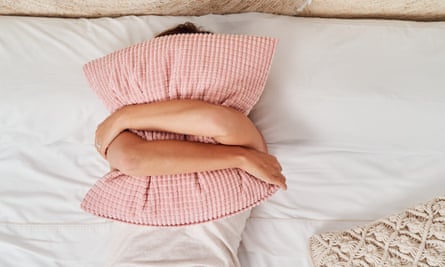
Blackout sleep mask
Sunshine is a beautiful thing, except when you’re trying to sleep at 4am. One of the worst nights I’ve ever had was in a B&B where the vertical blinds might as well have been made of tissue paper. Street lights kept me awake until 5am, when sunrise took over.
If only I’d had a decent sleep mask. The best masks genuinely block out all traces of light without pulling flat or tight across your eyes. I found my perfect match in the MyHalos mask, whose memory foam insert framed my eyes and gave my lashes plenty of space to move while I settled into REM sleep.
On my first attempt I didn’t fall asleep much faster than usual, but I woke up in joyous disbelief at the nine (yes, nine!) hours of shut-eye I’d achieved. Once I’d grown used to wearing the mask in bed, it seemed to hasten my ability to nod off, perhaps because my brain had learned to associate it with good sleep.
Time to fall asleep: 20 minutes
Time spent asleep: 9 hours
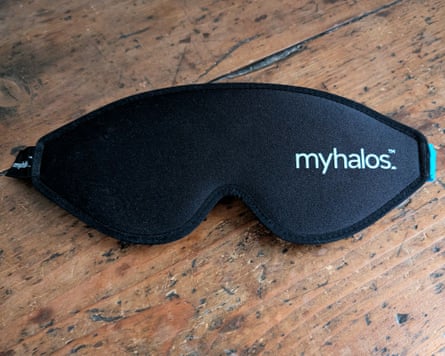
MyHalos blackout memory foam sleep mask
Bluetooth sleep band
Boring speech radio is my favourite grownup equivalent to bedtime stories. “Boring” is key; it can’t be anything that engages my mind. The main question is how to get those soporific sounds into my ears without disturbing my husband, Alan, or breaking sleep hygiene bans on bedside phones.
Bluetooth sleep bands aim to do the trick by working a whole room away from your phone, and incorporating unobtrusive flat speakers into a headband that doubles as an eye mask. I tried a couple of models, including the new SnoozeBand Silk. Its cooling fabric proved super comfortable – although my hair did get caught in the Velcro – and its controls paired efficiently with my phone via Bluetooth. Twenty-odd minutes of BBC World Service cricket was enough to send me off, but I did wake up briefly an hour later to push the band off my face.
Time to fall asleep: 20 minutes
Time spent asleep: 7 hours
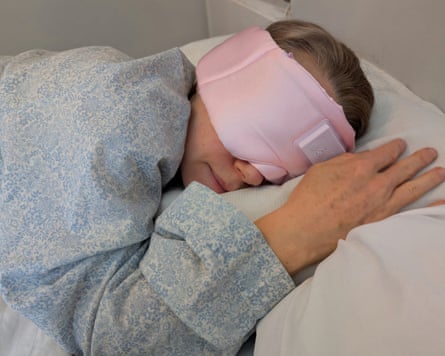
SnoozeBand Silk
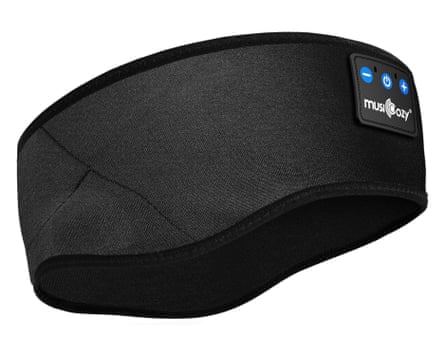
Musicozy sleep headphones
Mouldable silicone earplugs
Unpredictable sounds such as TV, street rabble and 2am helicopters are sleep-killers (I never had kids, which is probably just as well). Sponge earplugs are useless for blocking these noises, but BioEars – recommended by a friend – genuinely work, reducing external sounds by about 22dB.
These mouldable silicone blobs are safe and comfortable to wear in bed because they don’t go inside your ear canal, but rather block the entrance to it. While they didn’t help me fall asleep, I did, in fact, slumber in blissful silence through early morning noises, including No 27’s toddler, No 29’s early morning vacuuming, and my cat requesting breakfast (sorry, Iggy).
Time to fall asleep: 35 minutes
Time spent asleep: 8 hours

BioEars soft silicone earplugs
Lavender pillow spray
Smell is an incredibly powerful stimulatory sense, and numerous studies have confirmed the sleep-inducing power of lavender’s scent – including research that focuses on postmenopausal women, like me. A few spritzes of lavender oil-infused spray didn’t knock me out, but the aroma helped calm my racing mind and turned my pillow into a place of peace rather than insomniac dread. The pleasant smell also encouraged me to breathe deeply, which helped me fall asleep in an unusually quick 20 minutes.
Time to fall asleep: 20 minutes
Time spent asleep: 6 hours
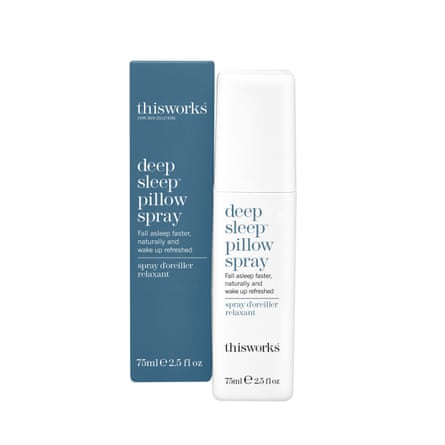
This Works deep sleep pillow spray, 75ml
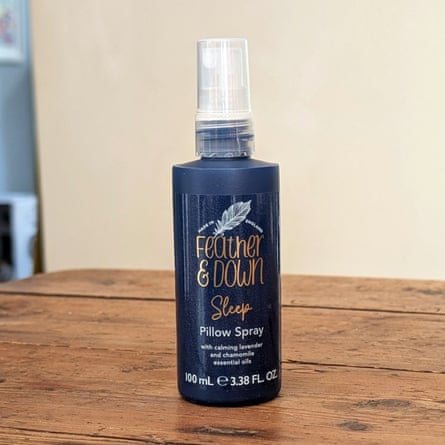
Feather & Down sweet dream pillow spray, 100ml
Magnesium bath flakes
Magnesium, a proven sleep-enhancer, is widely available in supplement form, and you don’t need a prescription. Go easy, though – taking more than 400mg can cause diarrhoea, as readers of Prince Harry’s squits-and-all memoir may recall. You could opt for magnesium-rich foods instead, such as spinach and dark chocolate, but you’d have to eat an awful lot of them. So manufacturers have found other ways to up your magnesium, such as bath flakes that allow your body to absorb the mineral as you soak.
I added the recommended 250g of salts to a hot bath before bed, and the effect was significant. My body felt heavy and relaxed, and I felt none of the “restless leg” sensations that see me thrashing around after I’ve failed to nod off. However, 250g is a lot of bath flakes (£4.95 at the link below), and there are no bubbles or fragrance to make your bath more enjoyable.
Time to fall asleep: 30 minutes
Time spent asleep: 7 hours
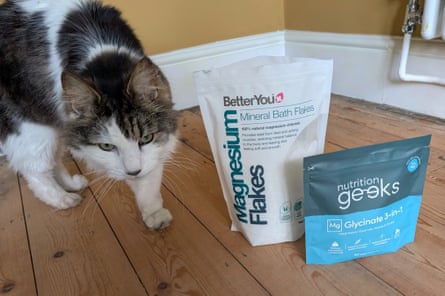
BetterYou magnesium original bath flakes, 250g
Nutrition Geeks magnesium glycinate supplement, 90 x 1,800mg capsules
Tart cherry juice
The juice of sour Montmorency cherries is having a moment among sleep influencers, who claim it’s “a powerhouse of antioxidants, anthocyanin, naturally occurring melatonin, and tryptophan”.
It’s also lip-smackingly delicious. If you’re a fan of fruity craft beer, get on this stuff – it’s like a cherry sour, minus the alcohol. It can also genuinely aid sleep, according to scientific studies and my own experience. I drank a recommended 250ml serving, just under half a pint, an hour before bed for a few nights, and fell asleep faster than average – although I woke briefly at 2am for the inevitable wee.
Time to fall asleep: 30 minutes
Time spent asleep: 7 hours with a loo break
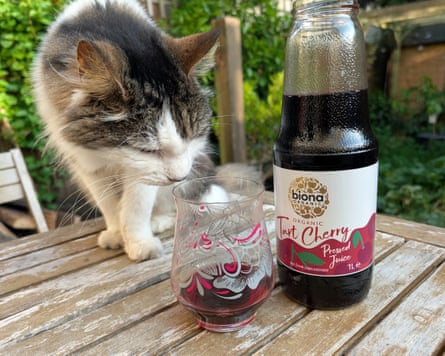
Biona organic tart cherry juice, 1l
Dark chocolate
This sounds insane. Chocolate is full of caffeine and sugar, two of nature’s greatest stimulants. But it also contains magnesium and tryptophan, which trigger your body to produce the “sleep hormone” melatonin. According to numerous online chocolate fans, these soporific chemicals far outweigh the stimulants if the chocolate contains at least 70% cocoa.
I couldn’t imagine a couple of squares of chocolate having the same effect as magnesium or melatonin supplements, which I’ve found moderately useful for sleep. (Melatonin isn’t licensed for sale in the UK, but it’s on supermarket shelves in mainland Europe.) But I actually slept very well after my four squares (about 30g) of 85% cocoa chocolate at bedtime, finding it soothing and – surprise, surprise – pleasurable. Not sure I, or my teeth, would want to eat it every night, though.
Time to fall asleep: 35 minutes
Time spent asleep: 7 hours
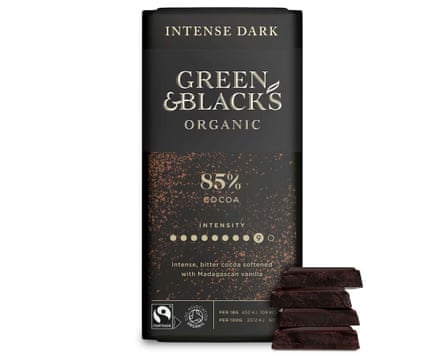
Green & Black’s organic 85% dark chocolate, 90g
White noise soundscapes
Why do I often find it harder to fall asleep in bed than when I’m curled in the back seat of our little car? According to research with babies, the rhythmic hum of a car engine is precisely the kind of white noise that enhances sleep.
I’m too old to be driven round the block every time I need help dropping off, so I turned instead to the white noise-style soundscapes of the Calm app, whose 180m claimed downloads suggest it’s getting something right. When I streamed its driving-related sleep soundscapes to a Bluetooth speaker from my bedroom-banished phone, it was more like sleeping next to a busy road than in the womb-like ambience of the car. Its nature-themed mixes proved more soothing. The tweety rustling of “Deciduous Forest” rendered me unconscious long before the 30-minute sleep timer switched it off.
If no app works for you, perhaps £349 will be money well spent on the “neuroscience-backed” SleepHub device. I found its soundscapes wonderfully relaxing, but I’d want it to bring me breakfast in bed, too, at this price.
Time to fall asleep: up to 45 minutes
Time spent asleep: 7 hours

Calm app for Android and iPhone
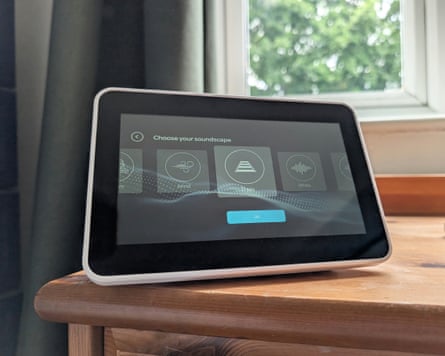
SleepHub
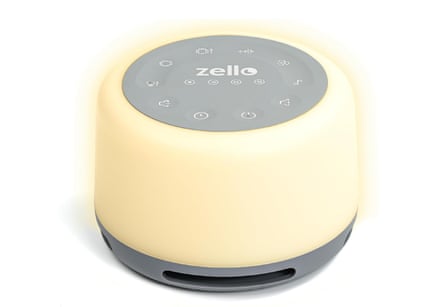
Zello white noise machine
Low-decibel electric fan
Too hot or too cold in bed, and I’m like Goldilocks spitting out her porridge. An electric blanket helps send me to sleep in winter, but sleepless nights in summer are harder to fix – not least because many electric fans are noisy and aggressive with their airflow. With yet another summer of record-breaking heat behind us, it’s no surprise to see companies making their fans more bedroom-friendly by cutting their noise levels and adding functions such as sleep timers.
I tried Meaco’s Sefte fan, whose 25dB sound level and 26W max power consumption are both significantly less than those of my fridge. Its gentle breeze and auto-off timer helped me nod off in comfort in the warmer nights of June, and then again when temperatures refused to back down in August.
Time to fall asleep: 40 minutes
Time spent asleep: 6-7 hours
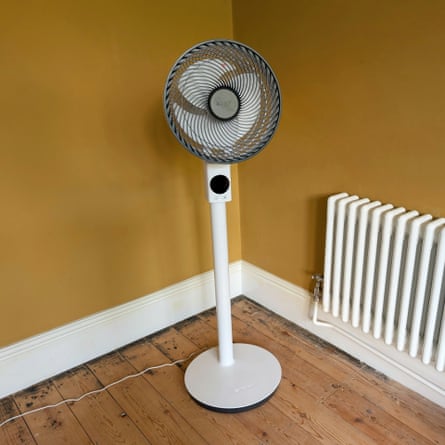
MeacoFan Sefte 10in air circulator
Body pillow
As a side sleeper who never grew out of her knock knees, I struggle to get my legs comfy in bed. I’ve tried knee pillows before, but fidget too much to get the benefit – especially on hot summer nights. Simba’s new Stratos-tech body pillow promised a more huggable solution, keeping me cool from top to toe while enabling my spine to align comfortably.
At first, I loved it. I snuggled it, inhaled it (my lavender pillow spray helped there), and certainly didn’t want to share it. But after a few tosses and turns, I found it was just getting in the way, so I kicked it over to Alan’s side of the bed. He promptly fell asleep wrapped around it.
Time to fall asleep: 50 minutes, but husband fell asleep immediately
Time spent asleep: 6 hours
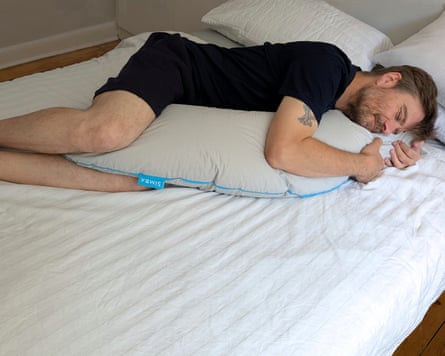
Simba body pillow
Decaffeinated coffee
Hot drinks have been used as bedtime pacifiers for centuries, but coffee? Experts, including the British Heart Foundation, recommend “switching to decaf coffee (for) a better night’s rest”, but fall short of saying it actually helps sleep.
It was worth a try, but I can’t say my milk- and sugar-free mug of decaf had much impact on my snoozing. It still took me well over an hour to drop off, and I woke for about an hour during the night. I’ve had similar nights of sleep after drinking fully caffeinated coffee.
Time to fall asleep: 90 minutes
Time spent asleep: 5-6 hours
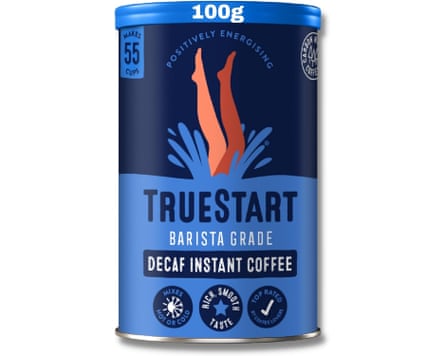
TrueStart Barista Grade decaf instant coffee, 100g
Lavazza decaffeinated coffee beans, 500g

Pistachios
While dark chocolate can help your body produce melatonin, nuts actually contain it. Pistachios are said to be one of the food world’s leading sources of melatonin, with some studies saying that 100g of pistachios contains up to 23mg of melatonin. That’s about seven times the amount in a typical melatonin pill, which you can’t buy legally in the UK anyway.
I’d expected my bedtime fistful of tasty pistachios to knock me out faster than laughing gas, but it didn’t – at all. Instead, these delectably moreish nuts made me want to stay up and carry on eating. I had a lovely time but needed some sleep, so I was reaching for the lavender spray by midnight.
Time to fall asleep: 90+ minutes
Time spent asleep: 5 hours
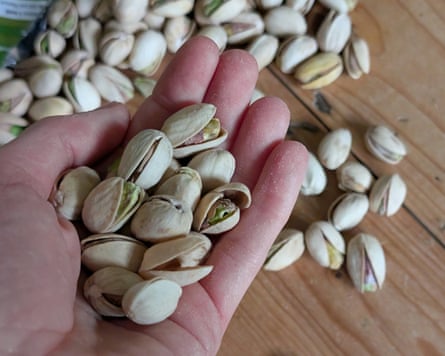
Pistachios in shell, 200g

Shelled walnuts, 200g
Blueberries
Blueberries are particularly rich in polyphenols, especially antioxidants called anthocyanins, which have been shown to improve sleep quality. That may be true for some, but I didn’t sleep particularly well after downing several packs of these delicious little fruits across a few days. I’m sure they were very good for me, though, and my gut was certainly moved by the experience.
Time to fall asleep: 90+ minutes
Time spent asleep: 5 hours

Fresh blueberries, 150g
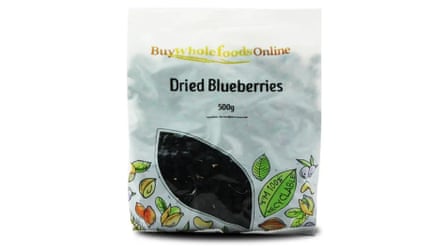
Dried blueberries, 500g
Jane Hoskyn is a features journalist and WFH pioneer with three decades of experience in rearranging bookshelves and “testing” coffee machines while deadlines loom. Her work has made her a low-key expert in all manner of consumables, from sports watches to solar panels. She would always rather be in the woods
Have you found something that always gets you to sleep? Let us know by emailing us at [email protected]

.png) 1 month ago
35
1 month ago
35



